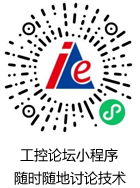安全仪表系统的十个事实之四(中英文对照) 点击:381 | 回复:1
TRUTH # 4
IEC6111 states that SIS users must demonstrate
competency in functional safety
WHEN IT COMES to Safety Instrumented Systems (SIS) logic solvers, the process industry reached a consensus in specifying that the equipment be third party certified to meet IEC 61508 parts 2 and 3.
Most Process plant require that SIS certification be issued by TÜV, recognizing this lab as the safety systems “Mark”, even when safety standards don’t mandate certification of SIS equipment by any specific testing lab.
What should be the process industry consensus around the personnel responsible for the design and implementation?
IEC 61508/ IEC 61511 / ANSI S84.01 and other international and national safety standards, as well as national regulatory agencies, require that all personnel involved in any stage of the SIS safety life cycle have proven and documented competency for the tasks they are assigned.
IEC 61511-1 the process industry’s Functional Safety standard for Safety Instrumented Systems for on Paragraph 5.2.2.2 indicates that persons, departments or organizations involved in safety lifecycle activities shall be competent to carry out the activities for which they are accountable.
So, if it is an industry recognized requirement that the SIS hardware and software be certified by TÜV, why not certify the engineers that design, integrate, program, install, operate and maintain the SIS?
There is a trend for new SIS projects to require the engineers involved in specification, programming or maintaining to have a certification of competency.
TUV Rheinland has institutionalized such a program so all engineers involved in any part of the SIS Safety Lifecycle can receive a certification from TUV as Functional Safety Engineers, in some cases employers have rewarded engineers with salary increases after completing the certification program.
大多数过程工厂要求SIS具有TUV(该实验室在安全系统“标志”上著名)认证,即使安全标准不强制SIS设备满足任何特定测试实验室的认证。
负责设计和实施的人员在过程工业的共识是什么?
IEC 61508/ IEC 61511 / ANSI S84.01标准、其他国际和国家安全标准和国家管理机构要求所有涉及SIS安全生命周期任何阶段的人员都必须具有从事分配给他们工作的已经证实的并有证明文件的资格。
在IEC 61511-1标准5.2.2.2段,过程工业的安全仪表系统的功能安全标准指出涉及安全生命周期活动的人员、部门或组织必须有能力执行他们负责的活动。
因此,如果它是一个具有TUV认证的SIS硬件和软件的公认的行业要求,为什么不认证从事设计、集成、编程、安装、运行和维护SIS的工程师呢?
新SIS项目要求涉及规范、编程或维护的工程师有资格证书的趋势。
德国莱茵TUV 公司已经把类似的程序制度化,因此所有涉及SIS安全生命周期的任何部分的工程师都能接收TUV功能安全工程师的证书,在某些情况下,雇主在完成认证程序后,会提高工程师的薪水。
- 交流接触器与接近开关的接线
 [2779]
[2779] - 有入门到吃透PID资料下载
 [3167]
[3167] - 如何在组态王里制作定时保存...
 [3936]
[3936] - 电动机及其工作原理概述
 [4033]
[4033] - 如何安装日文版GX Work2
 [1955]
[1955] - 求问!!!怎么才能获取积分啊!...
 [2088]
[2088] - (已结贴)工控PLC擂台第103期...
 [3920]
[3920] - 三菱PLC配方程序怎么写
 [2354]
[2354] - 电工实操神器(初学必备)
 [11504]
[11504] - 实践是检验真理的标准
 [2386]
[2386]

官方公众号

智造工程师
-

 客服
客服

-

 小程序
小程序

-

 公众号
公众号

















 工控网智造工程师好文精选
工控网智造工程师好文精选
